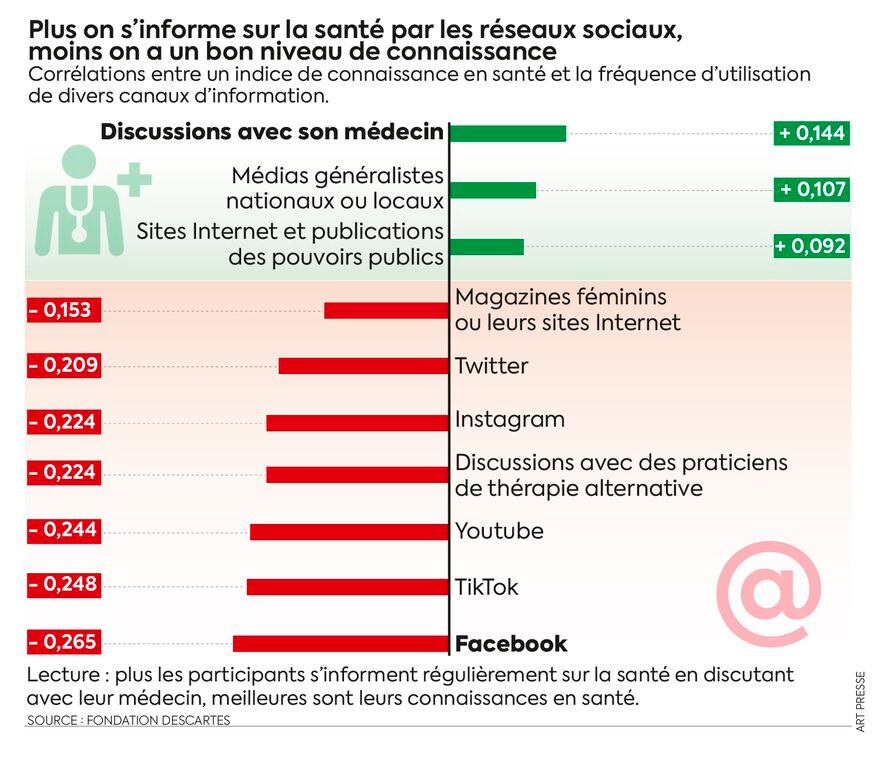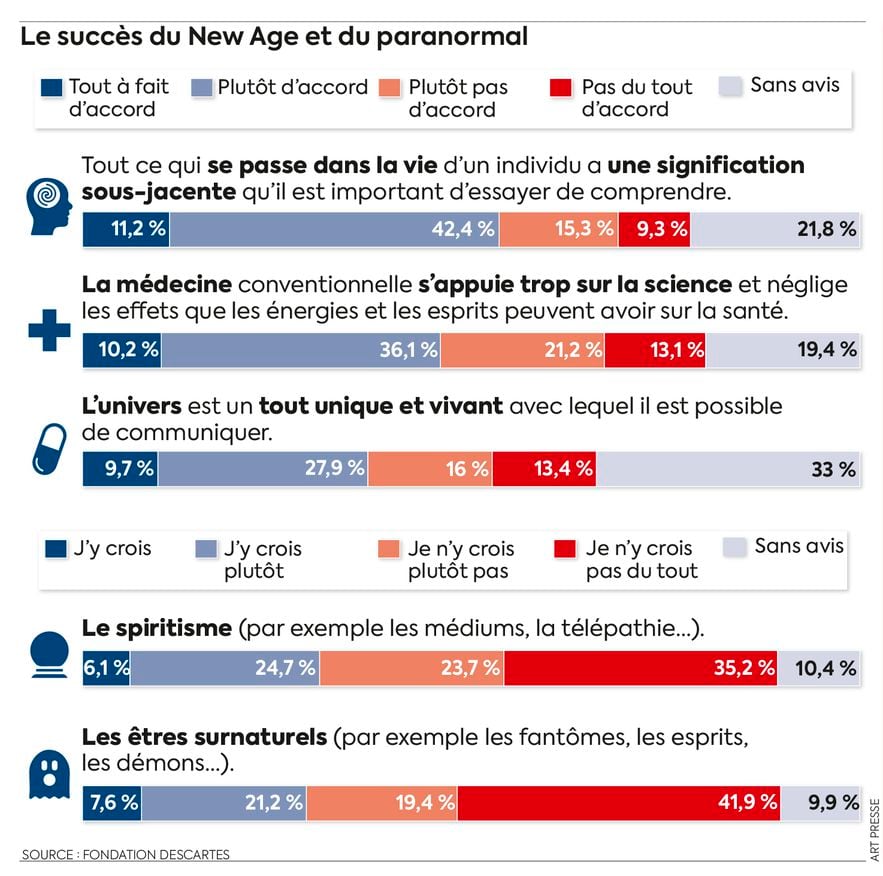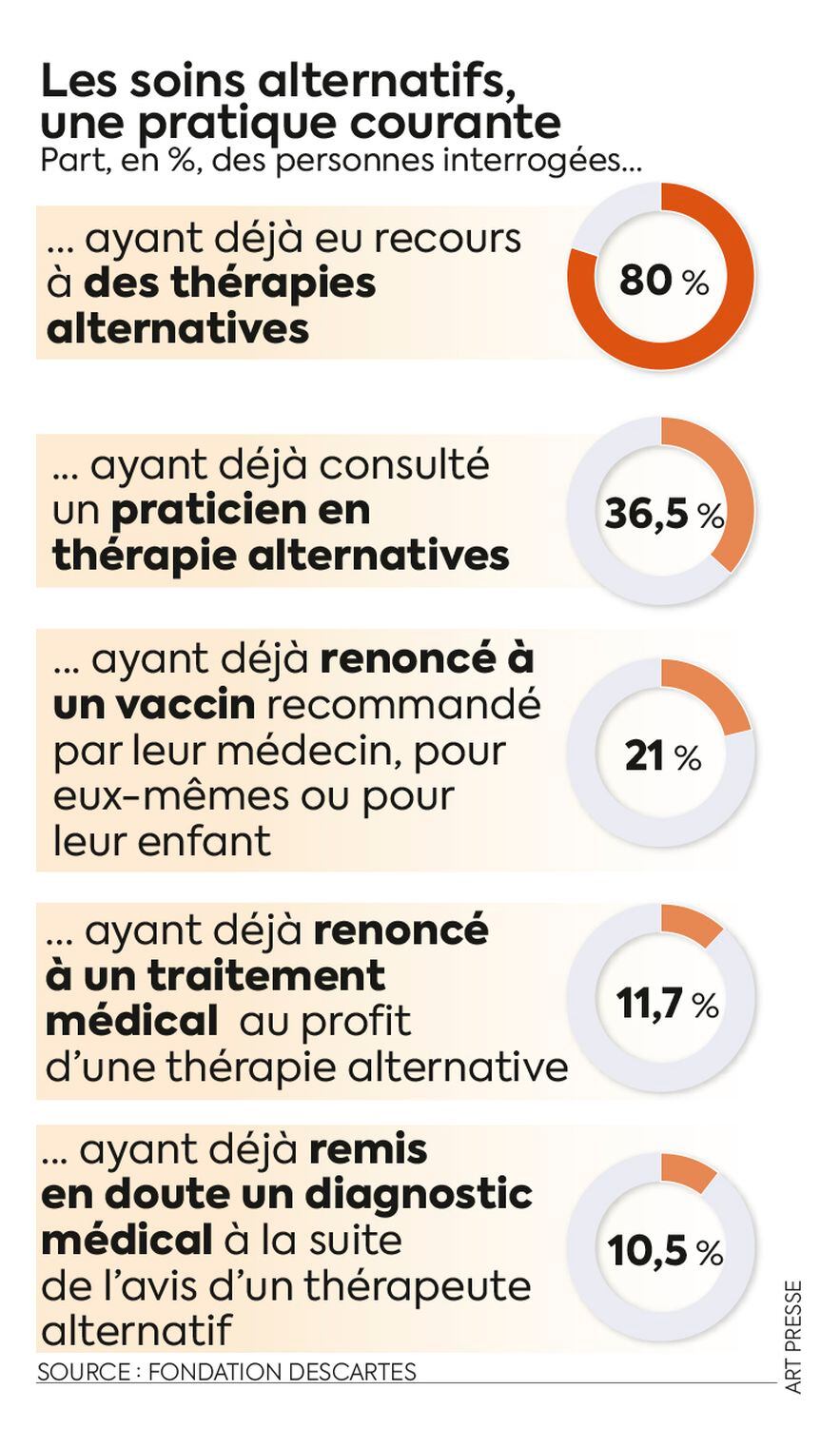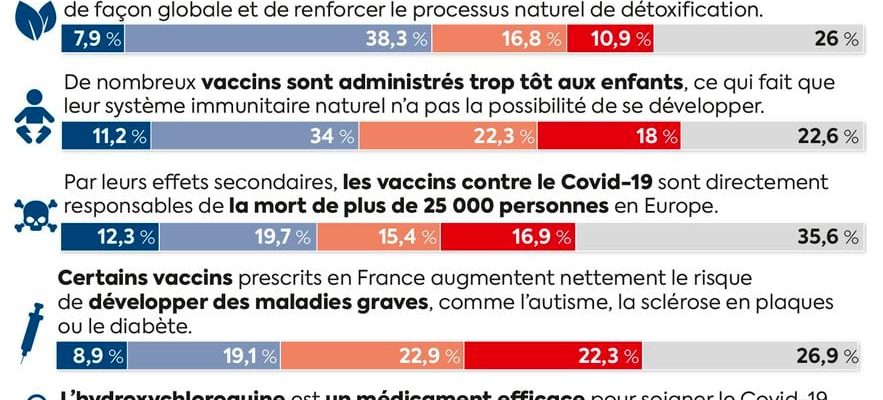Consuming frozen lemon helps fight diabetes and certain tumors. Confronted with this assertion, more than half of the 4,000 participants in a large study conducted by the Descartes Foundation, replied… that they did not know whether it was true or false. Widely relayed on social networks, it is of course totally eccentric. A result which highlights the lack of perspective of part of the population in the face of erroneous health information. “The day they fall ill, these people risk being caught up in this type of belief,” warns Laurent Cordonier, sociologist and research director of the Descartes Foundation.
Covid has shown how harmful misinformation can be. During the health crisis, controversies over treatments and vaccines had largely fragmented our society. But it was an exceptional situation, in an anxiety-provoking context. What about today ? To what extent fake news medical conditions continue to poison us? “This is an essential question, because false information, whatever it may be, polarizes public debate and weakens our democracies. When it concerns medical issues, it also entails health risks,” continues Laurent Cordonier.
To find out more, the Descartes Foundation, born in 2019 to oppose fake news, conducted a major investigation, revealed exclusively by L’Express. At first glance, the results seem reassuring. To obtain information about health, the French say they first trust caregivers, scientists and public organizations (World Health Organization and health authorities). They also say they prioritize discussions with their doctor and information from general media, and only 25% use social networks. “It is likely that, across all channels, disinformation represents for a majority of French people only a very small part of all informational content consulted daily,” analyzes Laurent Cordonier.
Beliefs inconsistent with science.
© / art press
Misconceptions about vaccines are widespread
Yet even a small amount of misinformation can be toxic. In a study carried out in the United Kingdom and the United States, participants were exposed to five fake news from social networks about anti-Covid vaccines. In the process, their vaccination intention was reduced. However, the work of the Descartes Foundation shows a strong penetration of fanciful medical beliefs in our country. Thus, erroneous ideas about vaccines are very widespread (30% of those questioned think that the side effects of injections against Covid killed 25,000 people in Europe, for example), just like those about food (50% believe that dark chocolate can cure depression, and 46.2% that detox diets are useful), or on the causes of cancer (stress would play a role according to 75.9% of them, as would traumatic events for 58%, and electromagnetic waves for 54.4%).

The more we learn about health on social networks, the less we have a good level of knowledge.
© / art press
Another troubling symptom is the popularity of beliefs in the paranormal or those stemming from the New Age movement, but also of alternative therapies, which 80% of French people say they use. To the point, for 12% of them, having already given up medical treatment in favor of these practices of unproven effectiveness, or, for 21%, having refused a vaccine even though recommended by a doctor.

The success of New Age and the paranormal.
© / art press
Why do some people allow themselves to be convinced in this way? Several factors seem to be at play, according to analyzes carried out by the Descartes Foundation. Thus, an intuitive way of thinking, where we trust our first impression rather than taking the time to think, seems to predispose us to believing false information. Religiosity, lack of trust in science, susceptibility to conspiracy beliefs, bad medical experiences and a poorer understanding of the scientific method come into play. “Our analyzes also show that the more people obtain information on social networks, the worse their health knowledge is, all things being equal,” notes Laurent Cordonier, who calls for better regulation of these sites.
“Fighting disinformation means emptying the ocean with a teaspoon”
A question which will be addressed during a conference open to the public on health misinformation organized by the Foundation on November 30 at the premises of the National Academy of Medicine in Paris*. The recent European regulation on digital services (Digital Services Act) certainly aims to make platforms responsible for combating illegal content online. “But fighting disinformation is like emptying the ocean with a teaspoon. It would also be necessary to promote quality information, in traditional media as well as on networks,” continues Laurent Cordonier. Among the avenues for reflection carried out by the Foundation: better specialization of journalists, and the possibility of creating an ecosystem of virtuous health influencers online.

Alternative care, a common practice.
© / art press
This would involve connecting doctors and researchers already present on the networks, then getting closer to other influencers, to help them improve the reliability of their information and advice. “As a guarantee of their good faith, platform managers could promote the visibility of these content creators. Technically, this would not cost them anything. If they refuse for fear of losing audiences, this would be proof that their business model is based on disinformation”, insists Laurent Cordonier. The fight has only just begun.
* Program and registrations: www.fondationdescartes.org
.
